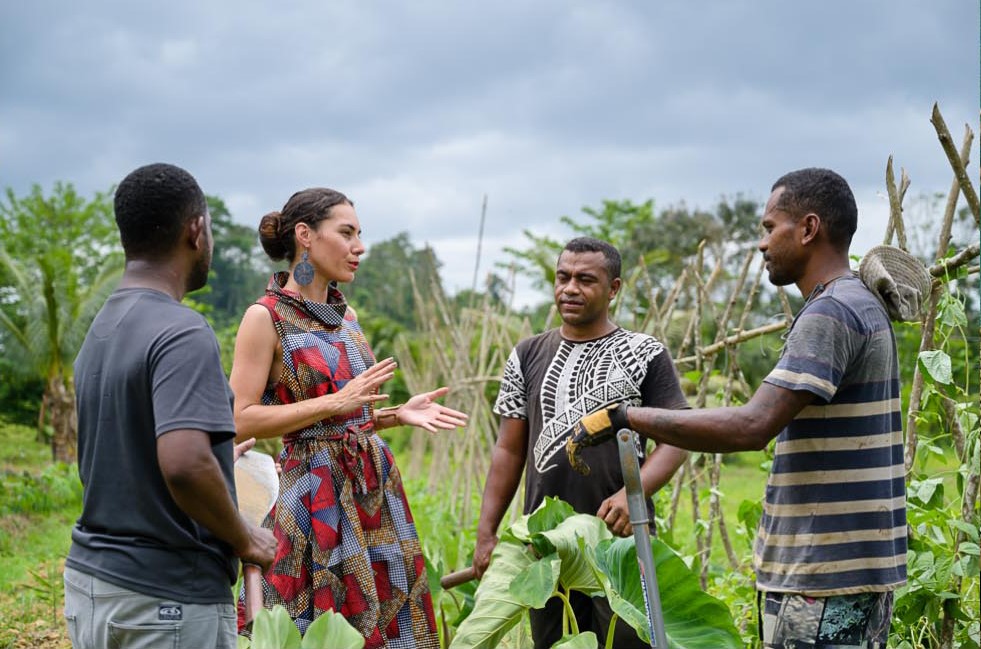Blessed with abundant sunshine and fertile soil, and entrepreneurs keen to add value to local produce and support indigenous communities, Fiji’s high value organic product sector is booming, and New Zealand’s food manufacturing and retail industry is already reaping the benefits.
Right now Fiji’s organic products sector is fizzing, and for good reason.
Peter Rudd, manager trade and investment for the Fiji Trade Commission, the organisation charged with opening pathways for Fijian products into the Australian and New Zealand markets, believes the upswing is the result of global consumers increasingly questioning the origins of products, who’s behind them, and the conditions in which they are made.
“People are also more aware of the benefits that organic products have on their health, and New Zealand is no exception.
“However, there’re only certain commodities that can be supplied locally, so trade partners are vital. And with its tropical climate and fertile soil ideal for growing fruit and vegetables organically, and its proximity and close diplomatic relations, Fiji is an ideal supplier for New Zealand companies. Many expats have noticed this and have been investing in the sector.”
Rudd is referring to profitable Fiji businesses that empower women and contribute to mitigating climate change
“Ranadi Organics is an example of a successful business that clearly understands the international opportunity,” he says, “having achieved Global GAP, USDA Organic and HACCP certification – among others.”
Guaranteeing supply chain traceability opens opportunities across New Zealand, Australia and the US, Rudd says. “With the support of Kiwi businesses, more Fiji businesses could follow Ranadi’s example and supply the entire international market.”
New initiatives
The Fiji Trade Commission to New Zealand has already made rapid progress on trade initiatives between Fiji and New Zealand in the organic sector. A trade visit last September saw Huckleberry, the organic grocer, buying USDA-certified organic ginger, turmeric, pawpaw and coconut on a weekly basis. Bula Batiki was another beneficiary with sales of its premium virgin coconut oil, says Rudd, and closer relations have been forged with importers/distributors Turners and Growers and Fresh Direct.
Fijian companies also pitched their organic products to Countdown and it’s hoped that this will result in more products on shelves by the end of 2020.
“Our focus is on raising awareness and delivering the message that Fiji offers fair, organic and sustainable trade alternatives,” says Rudd. “The main benefit for New Zealand businesses trading with Fiji, is offering Kiwi consumers products that are good for their health, align with their values and support indigenous communities.”
Meet Fiji’s empowering businesswomen
Jodi Smith, Sashi Kiran and Litia Kirwin are three women championing Fiji’s organic sector and the common denominator is their social entrepreneurship skills.
“Their bravery and resilience is motivated by their will to create positive change within Fijian communities,” says Peter Rudd. “Their priority is to give opportunities to the vulnerable sectors of the community while fully respecting the environment.”
In Fiji the key for these women is to learn and understand Fiji’s multicultural environment, he adds. “Once they overcome those barriers and build trust, navigating the market is easy.”
Jodi Smith: The Earth Care Agency
Jodi Smith is the driving force behind TECA – an organisation that runs blue-and-green-economy-focused projects in Fiji and supports Fijian businesses in primary industries – with a focus on closing the divide created by global inequality.
Eight years ago Smith transitioned a Fijian sheep and lemon farm into a business exporting organic-certified ginger and turmeric, and supplying many of New Zealand’s ginger beer manufacturers. It was her first taste of organic farming and she’s since worked at the coalface of agricultural commodity production with the goal of understanding the challenges of the world’s poorest people, changing their economic circumstances, and seeing what role organics can play in securing higher incomes.
Smith says selling Bula Batiki organic virgin coconut oil to Huckleberry in Auckland gave everyone involved in Fiji a huge sense of pride. It proved their product can compete on an international stage. “This brings a confidence which in turn inspires others.”
Sashi Kiran: FRIEND Fiji
The Foundation for Rural Integrated Enterprises Development was set up in 2001 to improve the livelihoods of Fiji’s rural communities using the knowledge and resources they already had.
Now almost two decades later their jams, chutneys, pickles, teas and spices have been developed into commercial products, all made and packaged in hygienic and safe food facilities.
The jams and chutneys are sold throughout Fiji and are now available in New Zealand.
“Fiji communities have an abundance of amazing staples like plantain (a type of banana), breadfruit and cassava which are gluten-free and rich in fibre,” says FRIEND Fiji founder and director Sashi Kiran.
“Even the most remote community is able to use solar technology to make gluten-free flours that offer consumers a healthy option and our communities a steady source of income.”
Litia Kirwin: Loving Islands
Litia Kirwin is the founding director of Loving Islands, a social enterprise manufacturing and retailing organic and natural cosmetics, wholefoods and homewares. These products support sustainable income opportunities and environmental conservation throughout the Fiji Islands.
“Every dollar our business earns positively advances Fijian community livelihoods,” says Kirwin.
“We are working towards becoming Fiji’s leading organic agricultural exporter of organic manufacturing inputs, such as organic activated coconut charcoal and unique medicinal plant oils.”
This article first appeared in the May 2020 Quarterly editionm of NZBusiness.




